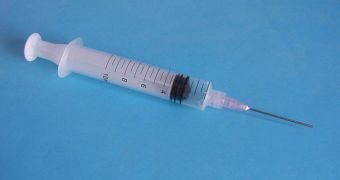In a paper published in the October 3 issue of the scientific journal Pediatrics, investigators determined that more and more parents have a tendency to delay administering recommended vaccines to their children. Some of the adults skip the procedure altogether, putting the little ones at risks.
Doctors have been warning against the practice for many years, and the US Centers for Diseases Control and Prevention (CDC) have been issuing warning about what could happen in these situations, but to no avail. Nothing seems to be enough to persuade the parents.
This type of behavior is restricted exclusively to children. Girls who reach puberty – the time when the HPV vaccine should be administered – are not taken to see their doctors because many parents fear this may encourage promiscuity in their daughters.
However, experts rightfully point out that the alternative is death by cancer. While the issue does leave some room for interpretation, vaccinating young children against common diseases does not. Diseases such as polio, meningitis, hepatitis A and tetanus are all avoided with these shots.
According to the latest statistics published by the CDC, it would appear that as many as 10 percent of all parents did not vaccinate their children within the recommended timetable set forth by the Centers.
That schedule it the product of numerous studies on when the best time to administer the shots is. As such, kids have the highest chances of being protected against the aforementioned conditions, and more, if they receive the vaccines within the indicated time frames.
CDC data also indicate that 2 percent of all parents refused to vaccinate their kids outright, putting them at risk of dying from preventable diseases. In addition, more than 29 percent of parents who did administer the shots said they delay in order to weed out “those vaccines that aren't really necessary.”
“What do you get for delaying it? Nothing,” says vaccine researcher Dr. Paul Offit, who holds an appointment as the chief of Infectious Diseases at the Children's Hospital of Philadelphia. He adds that most parents have no clues of the risks they expose their kids to by delaying vaccines.
“That's wrong. Those decisions are being made not only on false beliefs on vaccine safety, but also false believes on contagious disease and transmission,” Offit adds. Ultimately, most parents have no type of training in assessing anything about childhood health, especially at such a critical time.
“Overall, what our study showed to me is that this problem is not going to go away soon, and it's likely going to get work due to people's tenuous attitudes toward vaccines,” explains the lead author of the new study, Dr. Amanda Dempsey, quoted by LiveScience.

 14 DAY TRIAL //
14 DAY TRIAL //